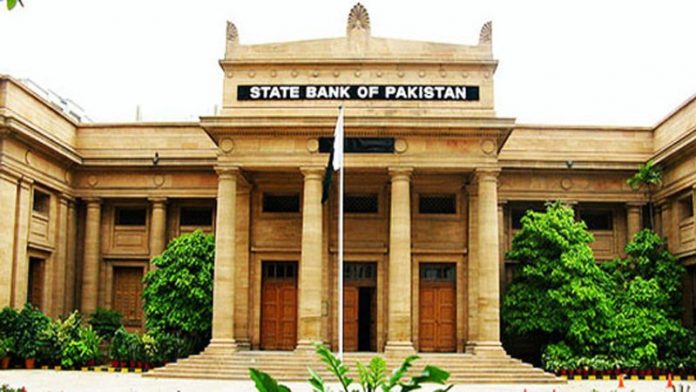- ‘Monetary tightening along with exchange rate adjustments, reduction in development expenditures of federal govt and regulatory measures helped contain domestic demand’
KARACHI: The State Bank of Pakistan (SBP), in its report issued on Monday, underscored the need to step up investments in human capital and technology, as it would boost productivity and increase exportability of the country’s goods, services and skilled labour, and allow it to generate foreign exchange in a sustainable manner.
The bank released its Second Quarterly Report on the State of Pakistan’s Economy for FY19. As stated by the report, the effects of macroeconomic stabilization measures taken since December 2017 started to unfold as the economy moved into the second quarter of FY19.
More specifically, monetary tightening along with exchange rate adjustments, reduction in development expenditures of the federal government and regulatory measures helped contain domestic demand, which is visible from a marked slowdown in imports.
This, together with a deceleration in external demand, the underperformance of major kharif crops, and moderation in the fixed investment loans, led to notable deceleration in economic activity.
Meanwhile, inflation continued to increase mainly due to cost-push factors and some persistence in underlying demand pressures.
According to the report, average headline CPI inflation rose to 6.5pc during the second quarter of FY19 – the highest quarterly inflation since Q1FY15, when global crude oil prices were around $100 per barrel. This trajectory was largely dictated by its core component, non-food non-energy (NFNE), which further gathered momentum as the pass-through of exchange rate depreciation and second round impact of high oil price accentuated its already elevated level.
Moreover, the report highlighted that the fiscal deficit continued to stay high despite a sharp cut in development spending since the beginning of FY19 and is undermining the efforts to contain domestic demand. While revenue collection declined, current expenditures increased.
Regarding the external sector, the report observed that there was an improvement in the current account deficit due to a decline in imports and a marked increase in workers’ remittances during the review period. However, exports were generally affected by a slowdown in international demand. Also, net financial inflows were lower than last year, leading to a drop in SBP’s FX reserves.
The report contains a special section which evaluates the fiscal burden of state-owned enterprises in the power sector. Recommended measures included a move towards more effective, apolitical collection process; investment in the transmission and distribution network; and creation of a national level consensus towards the formulation of a coherent energy sector policy.
The report features another special section on the importance of human capital in the context of China Pakistan Economic Corridor. The analysis takes stock of the country’s existing human capital and the employment opportunities set to arise in the near future as CPEC enters its next phase focusing on industrial special economic zones and agriculture. It then assesses just how prepared the domestic workforce is to capitalize on these opportunities and provides a roadmap to address the associated skill deficit.




